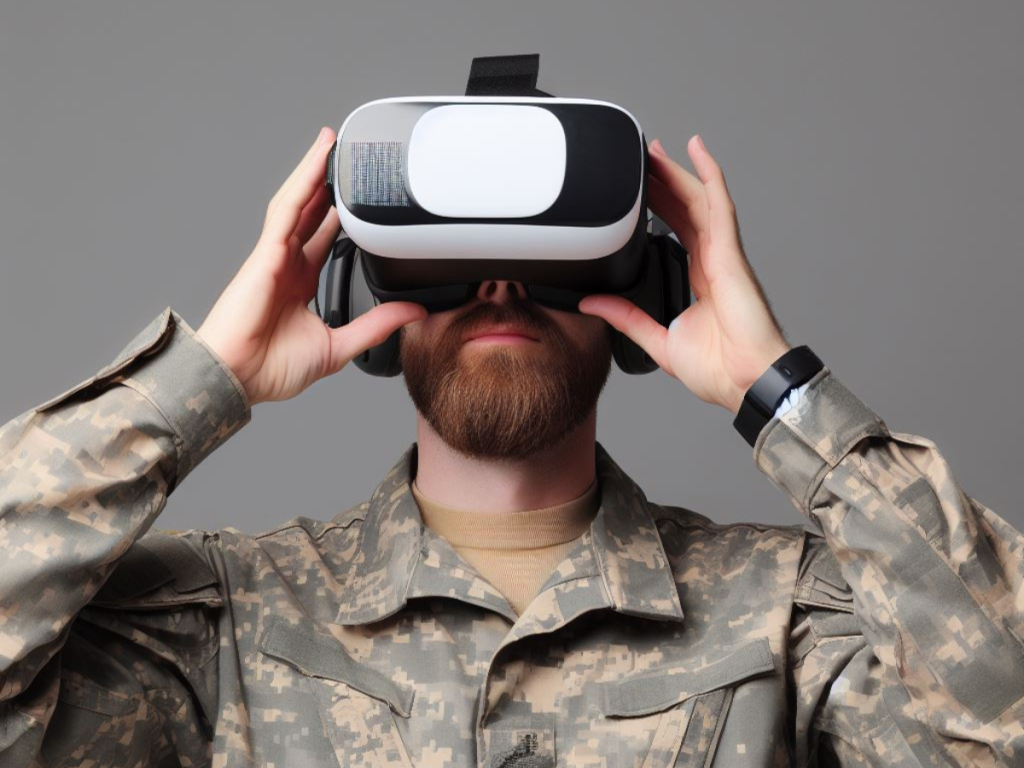When you picture someone whacking on a pair of VR goggles the first person you think of is probably not a 53-year-old retired veteran who used to be a Major in the Australian Defence Force (ADF). But, that’s exactly what Todd Berry is doing.
Berry turned to using virtual reality, or VR, to help him with guided meditation.
“It’s been really good. I tried [meditation] years ago, but it just didn’t work right. But since I’ve been using the VR kit, it’s really helped in a number of ways,” Berry told The Chainsaw.
“It’s really helped with my mood stability and reduced my neuroticism. I’ve done a few surveys over the years and found I’m a little bit neurotic, but it’s sort of evened it out.”
Dave Anderson is the Executive General Manager of RSL LifeCare Veteran Services, and he said they’re expanding the use of VR headsets to reach more defence personnel and veterans.
“We’ve partnered with At One, Frontline Mental Health Services, and Western Sydney University to develop and assess a unique emotional regulation model,” Anderson said.
“This initiative, benefiting current and former ADF personnel and their partners, employs innovative techniques such as virtual reality, group sessions, and mindfulness.”
Using AtOne on HTC or MetaQuest virtual reality headsets, veterans can meditate amongst real and virtual scenes including forests and the beach. The tech is also being used by other bodies including the Australian Institute of Sport’s European Training Centre.
The latest Australian Institute of Health and Welfare data found there were 1,677 deaths by suicide among permanent, reserve and ex-serving ADF members between 1997 and 2021.
Why are veterans using VR headsets?
AtOne founder, Edwina Griffin, said, “Veterans may be at a higher risk for mental health issues such as depression, anxiety, and post-traumatic stress disorder (PTSD).
“Data shows mindfulness and meditation has a significant effect on alleviating PTSD symptoms compared with both active and non-active control conditions.
“Research shows VR can reduce the symptoms of PTSD, particularly in war veterans, by calming the sympathetic nervous system, responsible for the ‘fight-or-flight’ responses to danger.”
And Griffin had her own personal experience with using meditation to improve her mental health. A few years ago she collapsed in her office from stress and had to be hospitalised.
“I started exploring virtual reality around 2012, but it was too expensive back then. And then I revisited it again around 2019,” Griffin told The Chainsaw.
“I realised the power of the visual and having my kind of eyes occupied with something to help me go into a deeper state.
“Virtual reality brings that component and enables us to create an environment that is relaxed even when you can’t control your environment so to speak.”
Help is available.
If you need mental health support, please call Lifeline on 13 11 14 or chat online.
Under 25? You can reach Kids Helpline at 1800 55 1800 or chat online.
If you require immediate assistance, please call 000.



